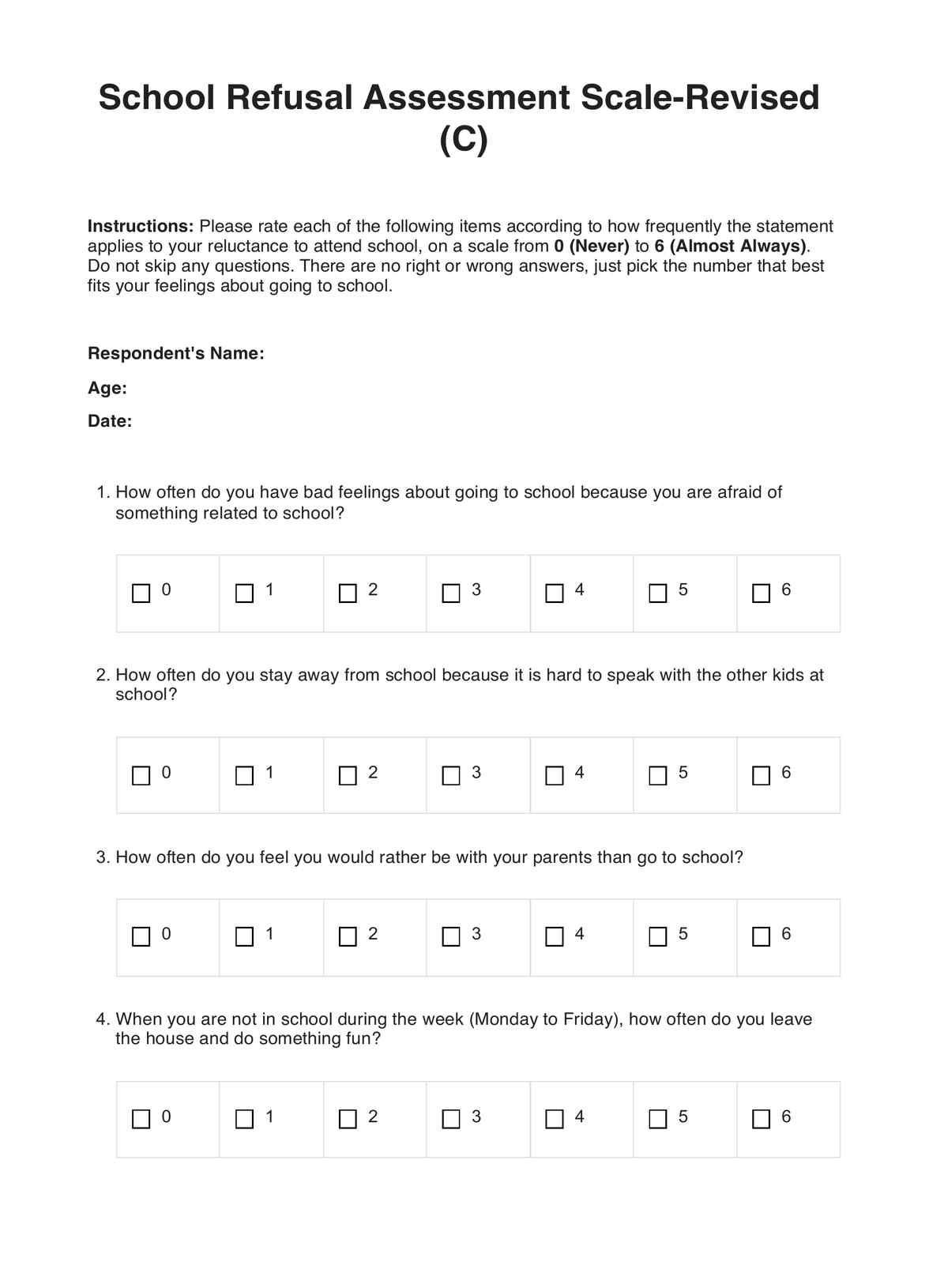Mental health professionals, school psychologists, and counselors commonly use the School Refusal Assessment Scale.

School Refusal Assessment Scale
Discover the benefits of using Carepatron’s School Refusal Assessment Scale (SRAS-R) — a trusted tool for identifying & addressing school refusal behavior.
Use Template
School Refusal Assessment Scale Template
Commonly asked questions
The SRAS-R is used when a child exhibits persistent school refusal or avoidance patterns.
The SRAS-R is used by administering a questionnaire to both the child and the parent, scoring the responses, analyzing the scores, and then planning interventions based on the results.
EHR and practice management software
Get started for free
*No credit card required
Free
$0/usd
Unlimited clients
Telehealth
1GB of storage
Client portal text
Automated billing and online payments











